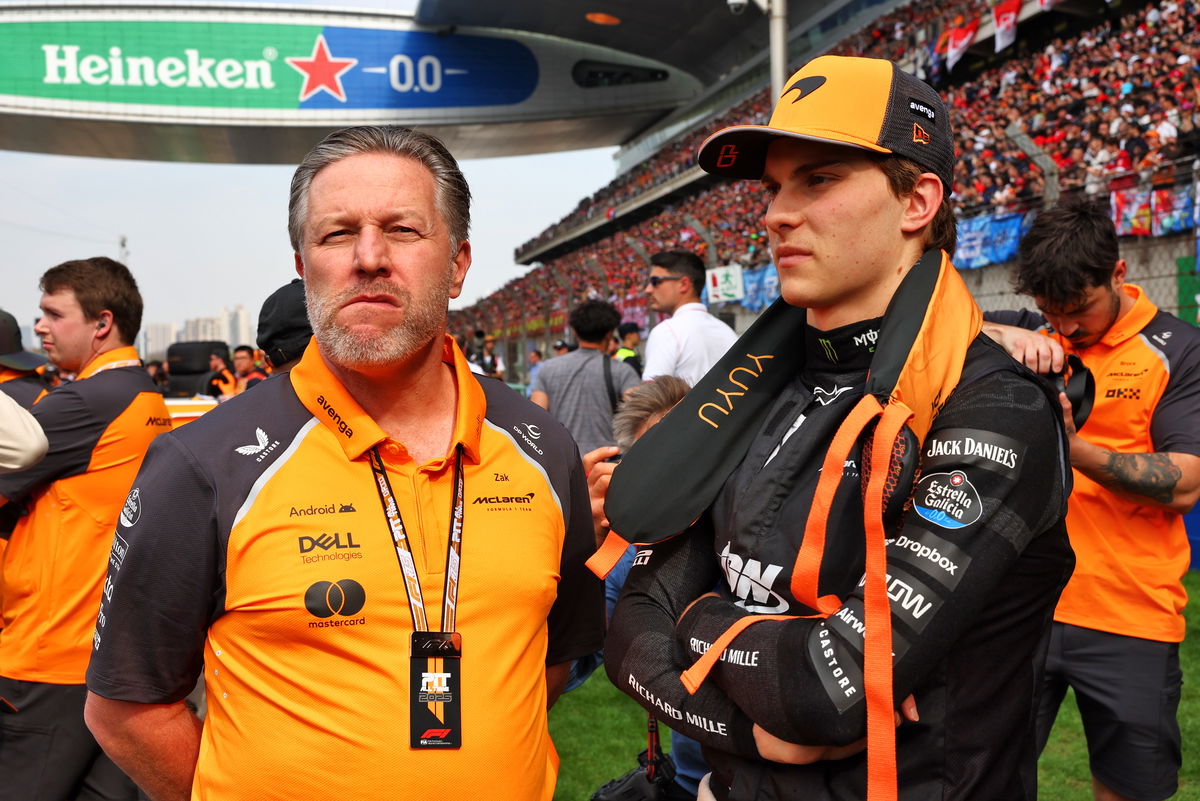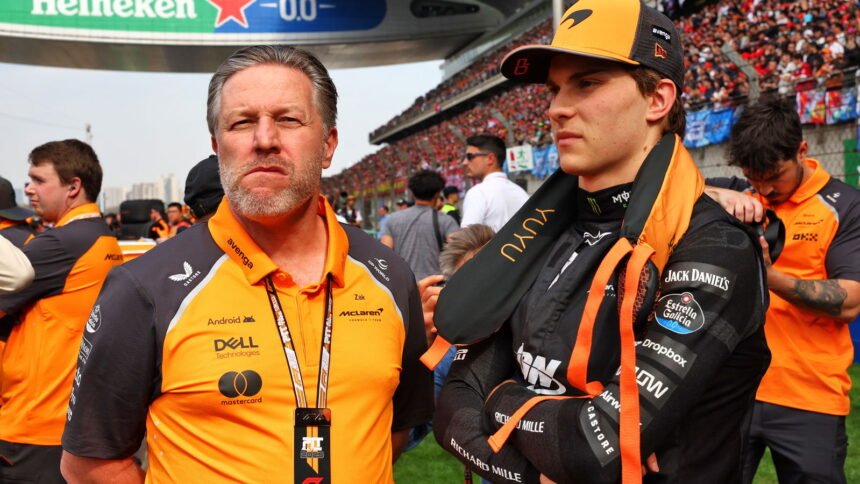
McLaren Racing CEO Zac Brown insists the team will not change its approach to the drivers’ championship now that the constructors’ title is secured.
Lando Norris’ third place finish at the Singapore Grand Prix was enough for McLaren to close out the constructors’ championship on record pace with six races remaining in the 2025 season.
McLaren successfully won the team trophy for the second year in a row, ending a 26-year wait for the 2024 title and being crowned constructors’ world champion for the 10th time in its history.
Attention now turns to the battle for the drivers’ championship, with Oscar Piastri leading Norris by 22 points. Red Bull’s Max Verstappen was third, 41 points behind Norris and 63 points behind Piastri.
McLaren is determined to limit its involvement in the drivers’ title race and has so far avoided favoring one driver over another, but its management style has come under criticism recently.
Brawn admitted Verstappen was “still quite fit” but insisted McLaren had no intention of changing the “papaya rule” for the remaining races.
Brown told McLaren’s official website: “I’d like to leave it to just the two of us, but Max is still very much in the game. I think the important thing is that the team remained focused but also very humble.”
“So we’re just going to keep doing what we’re doing. Winning the constructors’ championship doesn’t change our strategy. We’re going to approach the rest of the race weekend the same way we’ve approached every race so far.”
“That’s what we’re here for: win races, win championships. And we couldn’t be hungrier.”
Will McLaren be able to build an F1 ‘dynasty’?
Despite McLaren’s success in 2025, Brown stressed that the focus remains race-by-race.
“Do we want to build a McLaren dynasty and leave a legacy behind? Of course we do,” said Brown.
“But it’s like Andrea (Stella, team principal) says: ‘Instead of racing trying to build a legacy, if you go every weekend and focus on what you have to do that weekend, the results and history will take care of themselves.’
Mr Brown acknowledged that regulatory reform in 2026 will make it more difficult to achieve sustained success.
“Next year will be even stricter with new regulations,” he added.
“This year we had the advantage of being able to work within the regulations as we know them. However, we are now entering a new era with one of the biggest regulation changes in F1 history, which comes with a lot of risks and a lot of opportunities.”


